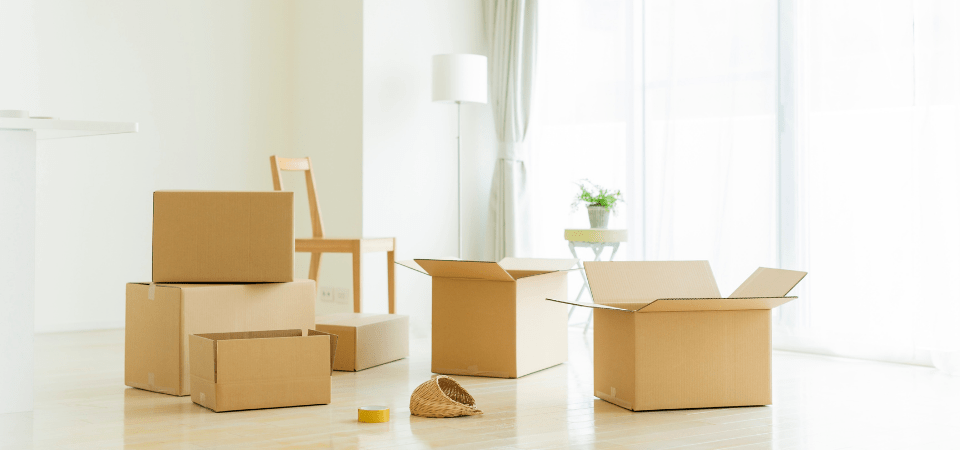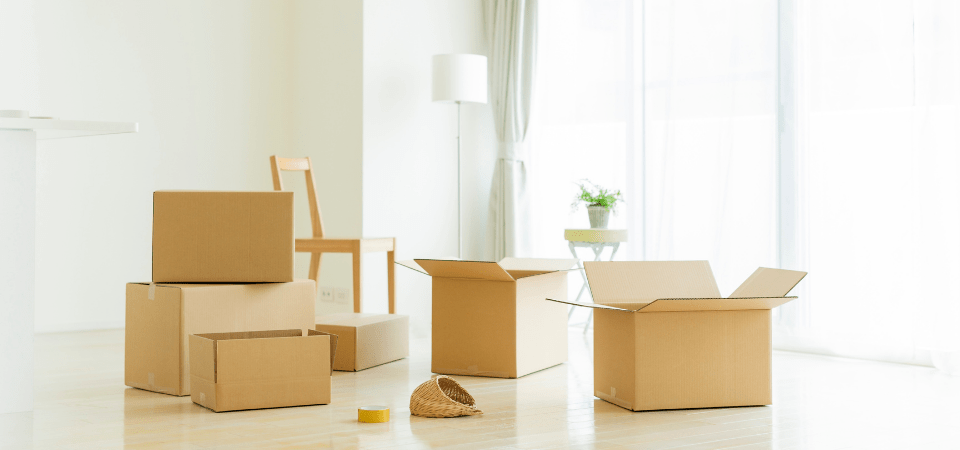
When your service member walks in the door, orders in hand, does your chest tighten? Does your mind start swirling with thoughts of all the things you will need to do? Any PCS can produce a stress response, but an OCONUS move can add even more with the uncertainties of what your housing will be like and how to get all your belongings there. Even your shipments are different. You might have to split your household goods up to four different ways and figure out the timing of when to send each one.
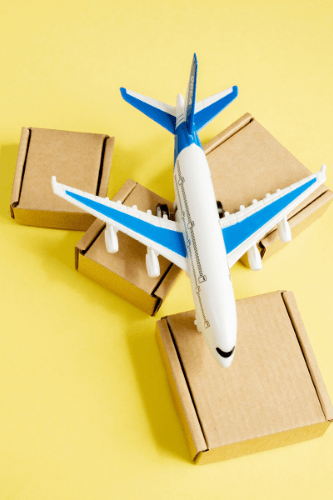
We have moved either OCONUS to OCONUS or back from OCONUS and then to OCONUS again eight times. We have PCS’d a total of nine times. It’s hard for me to imagine any other type of move and how it is different from a state-to-state move because this is all I really know. Though many things are different about moving and living OCONUS, what remains the same is who we are as a family, and who I am as a person. The things that bring us comfort and help us feel like we are home may morph slightly as we grow older and our families change but I believe that they stay close to the same. We have some items we always send first to provide stability and help us feel at home as soon as we arrive, others we have to leave in storage, and others we bring in our suitcases with us. Here are some questions to consider for each type of shipment to help you plan and ease the transition to your new home.
UNACCOMPANIED BAGGAGE (UAB)
This shipment is ideally supposed to arrive at your new duty station at the same time as you. It usually travels via air. Items you pack in this shipment can help you function until your main shipment arrives. It is also nice to pack little things whose only function might be to make you happy! When deciding what to pack in your UAB shipment ask yourself:
1. Is this something you need almost as soon as you get into your new house?
2. Will this make the immediate part of the transition smoother?
3. What things will make living in a mostly empty house comfortable until the rest of your things arrive?
4. What makes your house feel like a home?
For my family, when we pack our UAB we send camp chairs and a camp table. We love to sit around the table for our meals and talk. It’s something that immediately makes us feel like we are home. We can use that table and those chairs for a lot of different things. We eat our meals, play games, do homework, write, and do volunteer work at that little camp table. It’s just nice to not sit on the floor for up to three months. The table and chairs, for us, are a first step at turning our new house into our new home. What is something important to you and your family that gives you that feeling of settling in?
NONTEMP STORAGE

Many OCONUS locations offer smaller living quarters, don’t have closets, or possibly even come furnished and you may not be able to take all of your household goods. You will be able to store things that you don’t want or can’t take with you for the duration of your OCONUS tour. When looking at the bigger items in your home stop to think about what each piece means to you:
1. Can a piece be repurposed?
2. Is it an antique or family heirloom that you would rather not risk shipping across the ocean?
3. If it’s a small appliance like washers and dryers or televisions, does it convert to the correct wattage?
4. Will the small appliance sit in storage well while you are overseas?
5. Will a washer and dryer or any furniture be furnished for you by housing?
6. Do you need all of your dishes?
We have an armoire that we have shipped to all of our duty stations except the fully furnished ones. We have used this armoire for so many different things. When we were first married it was a TV stand in our bedroom with some clothes storage. When we lived in Germany we used it to store dishes. In Virginia and now Hawaii it is in our entryway as a place to store jackets, shoes, masks, and various things.
SUITCASES
Because you will be flying to your new home, you will also be authorized more suitcases. Of course, you still get your household goods (HHG) shipment but that can take months. When thinking of being without your things it’s important to remember what makes you feel happy and comfortable when preparing for all the various shipments. Ask yourself these questions:
1. Does it make you feel better to have clothes for every option once you arrive at your new duty station?
2. Or are you someone that can make multiple outfits out of a few basics by adding accessories or mixing and matching?
3. Are you moving from a hot duty station to a cold one or vice versa?
4. Do you want to pack a lot of toys or other items that will help your children feel comforted by familiar things?
5. Do you want to pack as many kitchen items as possible to make absolutely sure you have them when you arrive?
When packing our suitcases, we consider a lot of different factors. Our Servicemember gets the most suitcases. He has to pack for a lot of different scenarios and needs all of his different uniform options. Plus, he needs PT clothes and civilian clothes. We also pack a suitcase of toys and books for our daughter. We have found that it makes the transition easier for her if she has some toys that come with us. What will help the transition for your child? What makes them feel at home? We let her pack her carry-on with some guidance (she’s five). She usually picks a blanket, her baby pillow, and her foxy. All these things make her feel secure and like she has home with her.
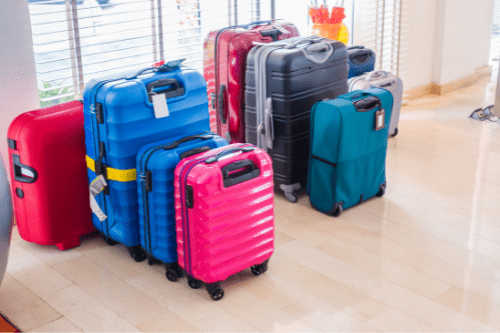
It’s also important to remember that each family member gets two suitcases (some airlines allow you more luggage if traveling on orders. I highly recommend checking with your airline to see exactly what you might be eligible for outside of the two suitcases per person). You can also use a gorilla locker in lieu of a suitcase. If, for example, your child only needs one suitcase, how can you use that other suitcase, or do you even want to worry about another suitcase?
Your last shipment is your main household goods shipment with everything else that didn’t need to go into storage or fly in either unaccompanied baggage or with you on the plane. Deciding which shipment you want to pack out first is one of the first decisions to make. Once that is decided, make a running list of what will make the transition easiest. We like to pen and paper these lists and check them off as we go. A lot of my friends keep lists on their phones and share the note with their family members and then they can all update as they go. Use what method works best for your family.
Taking some time to really think about how you use your belongings, what things you need to have around you to make you feel your best, and what will make your home easy and comfortable while waiting for the rest of your household goods, can ease your transition and give you confidence when putting yourself out there to meet new people and go new places. Despite all the stress of moving, we always enjoy our tours overseas. We love getting to travel abroad, explore new places, and learn about new cultures. We have the most fun trying different foods and drinks. We like to use it as an opportunity to, as much as possible, fully immerse ourselves in our host country. What tips and tricks do you have for packing for an OCONUS move? We would love for you to share them with us!
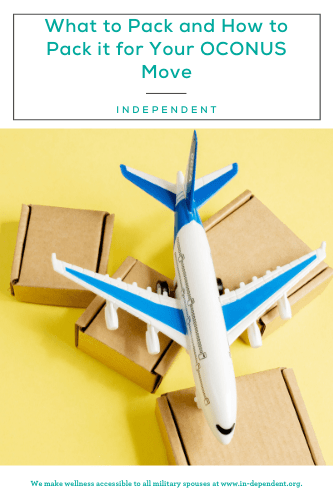
ABOUT ELIZABETH
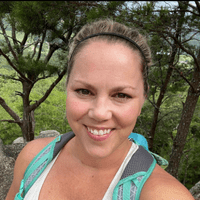
Elizabeth Bosse is a yoga teacher, reiki master and teacher, and writer. As the creator of the blog WellnessWildernessWithElizabeth she is building a program to take wellness on the move.
As a military spouse of fifteen years and mother of a young daughter, Elizabeth has had a lot of practice maintaining wellness through changing circumstances, developing her philosophy through nine moves (eight of which were overseas), two deployments, and one evacuation. She has a master’s degree in social work from the University of Alabama and experience in hospice. In her spare time, Elizabeth enjoys running, swimming, reading, practicing and teaching yoga, and traveling.
